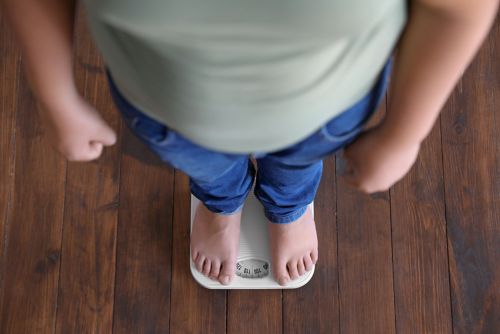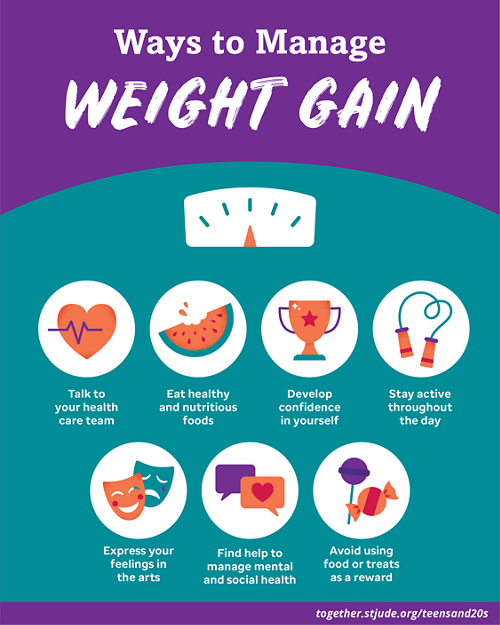Eating healthy, staying active, and sleeping well
You may already know the basics of healthy eating, like eating lots of fruits and veggies, along with choosing foods high in fiber. Working with a dietitian may also help you stick with healthy, tasty food that isn’t as likely to cause weight gain. The National Cancer Institute offers lots of Eating Hints that can help you avoid weight gain.
Treatment and cancer itself can make you feel more tired and less active. When you’re feeling treatment fatigue, it’s hard to believe that getting active will give you more energy. But it can! It will also help you feel better. Ask your team for tips about the best activities for you.
Weight gain and poor sleep quality are linked. Being overweight puts people at more risk for sleep apnea. With this condition, people can stop breathing for a short time during sleep. Sleep apnea can make people feel tired during the day, which makes it hard to concentrate. If you’re not sleeping well, talk with your health care team.
Are healthy habits worth it? Research studies show that the habits you set up while you’re young will follow you into adulthood. Those healthy habits can help you avoid all kinds of health problems in the future, like high blood pressure, type 2 diabetes, and cancer.
Strong emotions can go along with weight gain
It’s normal to feel anxiety about body changes like weight gain. You’re right to have any feelings you have, including:
- Sadness
- Anger
- Shyness
- Embarrassment
- Frustration
- Self-consciousness (awareness or worry about what others think about you)
Sometimes, when our bodies are under more stress than normal, weight changes can occur. It is important to remember that you need to give yourself some time to adjust to these changes. Make sure that you are fueling your body in a healthy way while remaining active.
Sharing feelings with friends and partners
Teens and young adults often compare themselves with others, like friends. But most of your friends aren’t going through cancer treatment, and all the challenges this brings. Right now, you need the joys of friendship and fun. So try not to avoid friends, school, work, or photos because of weight gain.
If you feel awkward about how your friends will react to your weight change, try being open about your feelings. They’ll most likely offer an understanding ear, as well as reassurance. That includes your romantic relationships. The right partner will support you at any weight.





